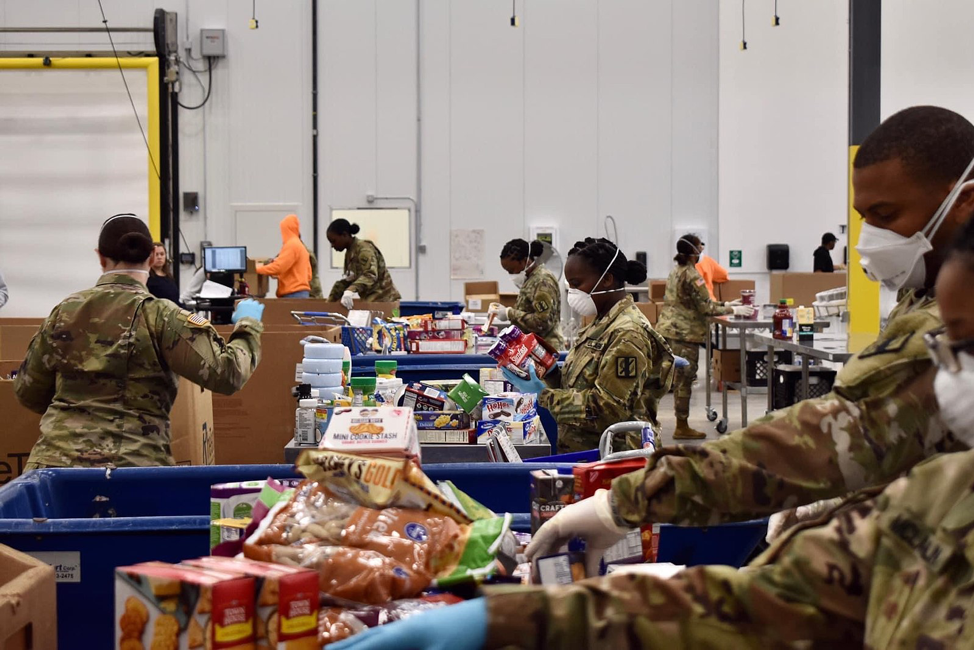The Health and Economic Recovery Omnibus Emergency Solutions Act, also known as the HEROES Act, is currently pending approval in the Senate. If passed, the bill would provide $3 trillion in COVID-19 relief. From this amount, food and nutrition services are expected to receive $14.25 billion in assistance.
The bill contains a lengthy list of proposals including but not limited to food assistance, a second round of stimulus checks, hazard pay, extension of unemployment benefits, student loan forgiveness, rental aid, mortgage relief and debt collection freeze.
The Supplemental Nutrition Assistance Program (SNAP), a food budget supplement for needy Americans, will receive $10 billion. In Florida, more than 2 million households now rely on SNAP. Back in February, that number was 1.4 million; the rise in unemployment claims is cited as the reason for this 40% increase.
Feeding Tampa Bay President and Chief Officer Thomas Mantz said, “Families can use SNAP dollars more effectively than donated food.” Food banks are experiencing longer wait times and cannot always guarantee that the food will accommodate the dietary needs of an entire family. The additional funds for SNAP and other related programs would help struggling families purchase their own groceries versus relying on food banks.
A survey by Feeding America found that their food banks have experienced an average increase in demand of 60%. Many of these families are seeking assistance for the first time. The organization supports the HEROES Act’s proposal to expand food assistance programs, citing that SNAP provides nine meals for every one meal that Feeding America provides.
Feeding America has raised several concerns about the bill, however. While $150 million is set to help local food banks, this would not cover the cost of storage, distribution, or long-term capacity that is needed for prolonged demand. The organization is working to overcome other obstacles such as increased costs from higher demand and a decrease in volunteers at Feeding America.
The HEROES Act will significantly impact elderly members of the community. The minimum monthly benefit for seniors will increase from $16 to $30 through September 2021, thus expanding the aid for more than one million senior households.
The School Nutrition Association (SNA) urges Congress to pass the HEROES Act as $3 billion will be used for child nutrition programs. Schools across the country have faced economic losses from COVID-19 school closures. Grab-and-go meal pick-up and delivery, which was essential to feeding children during the pandemic, added extra costs to schools’ already tight budgets.
“COVID-19 has crippled school meal program budgets, which leaves many districts without sufficient funds to restock school kitchens for next school year,” said SNA President Gay Anderson, SNS. “Congress must pass The Heroes Act to ensure school nutrition professionals have the resources to safely meet students’ critical nutrition needs this fall.”
The remaining $1.1 billion will be given to the Special Supplemental Nutrition Program for Women, Infants, and Children (WIC). This program works to protect women, infants, and young children at nutrition risk by providing them with nutritious foods to supplement diets, information on healthy eating, and referrals to health care.
The HEROES Act was introduced by Democrats and passed in the House on May 15, 2020. “The Heroes Act is a bold step to provide that support and ensure our nation meets the challenge of the pandemic and the ensuing economic recession,” said Rep. Nita Lowey, D-N.Y., the bill’s main sponsor. Supporters of the bill fear that it will not pass through the Republican-controlled Senate.
Critics argue that the bill includes too many partisan provisions when it should be focused on public health and economic challenges. Senate Majority Leader Mitch McConnell, R-K.Y., said, “Any further recovery efforts should focus intently on three things: kids, jobs and healthcare. Partisan theater and politicized wish-lists are not what our country needs.”
The earliest the Senate will consider the HEROES Act is July 20, 2020, as this is when Congress will return from their summer recess. With the rise in unemployment and economic hardship, the HEROES Act could help ease the burden on millions of food-insecure Americans.
Featured image: Soldiers from the Georgia National Guard COVID-19 response force at the Atlanta Community Food Bank in April 2020. (Unmodified photo by the Georgia National Guard used under a Creative Commons license. https://bit.ly/2YSb1cy)





